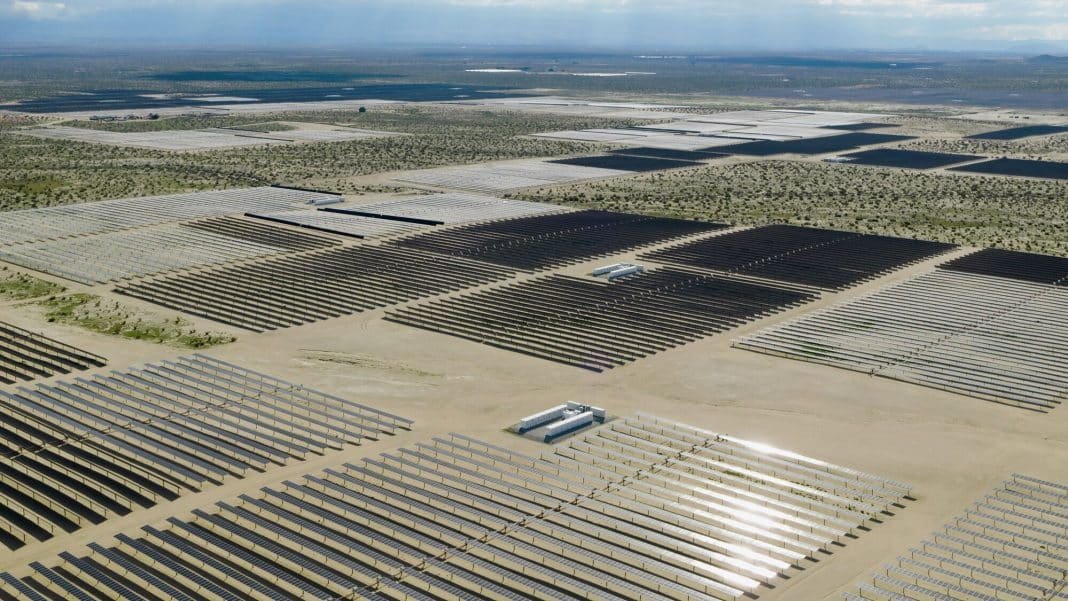July 10 marked an extraordinary moment for Amazon, reaching its 100% renewable energy goal a stunning seven years ahead of schedule. Originally set for 2030, the rapid transition across all operations surprised the world. So how did Amazon achieve this moment of massive success? Let’s discover…
Decoding Amazon’s Journey to 100% Renewable Energy
Bloomberg NEF reported that Amazon has invested billions in installing 500 solar and wind projects globally. This is enough to power 7.6 million U.S. homes. The retail giant has been the world’s top corporate buyer of renewable energy in the last four years. They have set an example by adapting to the growing demand for AI while exploring new energy sources and approaches for achieving carbon neutrality.
Amazon’s Chief Sustainability Officer Kara Hurst has elaborately said,
“Reaching our renewable energy goal is an incredible achievement, and we’re proud of the work we’ve done to get here, seven years early. We also know that this is just a moment in time, and our work to decarbonize our operations will not always be the same each year—we’ll continue to make progress, while also constantly evolving on our path to 2040. Our teams will remain ambitious, and continue to do what is right for our business, customers, and the planet. That’s why we’ll continue investing in solar and wind projects, while supporting other forms of carbon-free energy, like nuclear, battery storage, and emerging technologies that can help power our operations for decades to come.”
Once all projects are operational, they can remove approximately 27.8 MMT CO2 annually. Here are some remarkable achievements driving Amazon’s transition to 100% renewable energy:
Mississippi’s Wind Farm Powering Amazon Data Centers
Delta Wind, one of the Mississippi’s largest wind farms supplies carbon-free energy to power Amazon’s local operations and data centers. Apart from this, Amazon has also partnered with Entergy to develop 650 MW of new renewable energy projects in Mississippi over the next three years. It aims to reach 1.3 GW of clean energy through solar and wind farms in the state.
Amazon Leads in Offshore Wind Projects in Europe
Currently, Amazon supports 1.7 GW capacity across six offshore wind farms in Europe. It expects to power 1.8 million average European homes once they become 100% operational. This makes Amazon the top corporate purchaser of offshore wind globally. The 750 MW Amazon-Shell HKN Offshore Wind Project which began operations last year, provides renewable energy across the Dutch coast.
Expanding Renewable Energy in Asia Pacific
Amazon has a robust grip over the Asia Pacific region. Its portfolio includes 80 renewable energy projects throughout India, Australia, China, Indonesia, Japan, New Zealand, Singapore, and South Korea. The company invested in 50 wind and solar projects with a total capacity of 920 MW in India, alone.
As the largest corporate purchaser in Japan, Amazon has enabled 20 projects, including 14 onsite solar installations and six offsite wind and solar projects. Amazon has helped Japan overcome its energy challenges. It works closely with industry groups and policy stakeholders to expand renewable energy procurement in the corporate sector.
AI Powers Solar Storage for 24/7 Energy
Energy demand for decarbonizing the grid is unstable when reliant on solar and wind power. Amazon believes incorporating AI and ML in carbon-free energy (CFE) can be a game-changer for grid stability. The company has developed a unique formula for installing battery storage systems with solar projects to ensure an uninterrupted CFE supply. A recent blog post highlights the significance of the Baldy Mesa solar farm, operated by AES, where machine learning models from Amazon Web Services (AWS) predict optimal times for the battery to charge and discharge energy. This innovation enhances the efficiency of solar-powered projects, even when sunlight is limited.
According to the International Energy Association (IEA),
“The global fleet of wind turbines generates over 400 billion data points annually. AI and ML models can use this data to enhance the efficiency of carbon-free energy projects.”
Amazon’s Net Zero Strategy and Carbon Footprint
Amazon’s goal is to achieve net zero carbon emissions by 2040. This is a decade ahead of the Paris Climate Agreement timeline. By joining the Climate Pledge, Amazon believes in regularly measuring and reporting their GHG emissions, implementing decarbonization strategies, and using credible carbon offsets to neutralize any remaining emissions.

According to its annual sustainability report, Amazon reported a 3% reduction in overall emissions in 2023. Its total emissions fell from 70.74 MMT CO2e equivalent in 2022 to 68.82 MMT CO2e in 2023, with meeting the target of 100% renewable electricity globally.
- FURTHER READING: Amazon’s Carbon Emissions Take a Green Turn with Renewables

